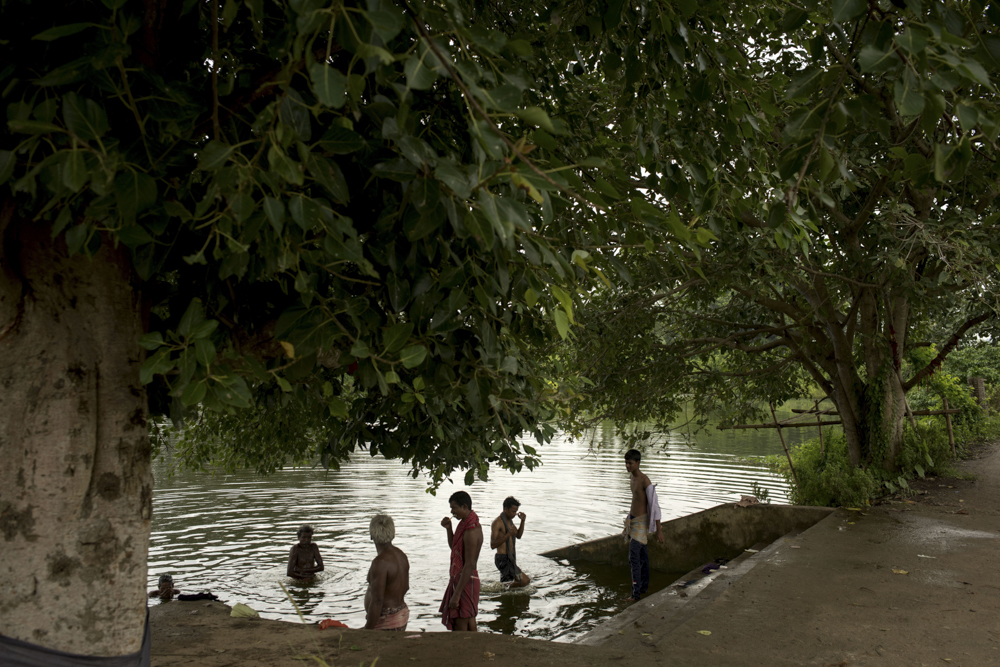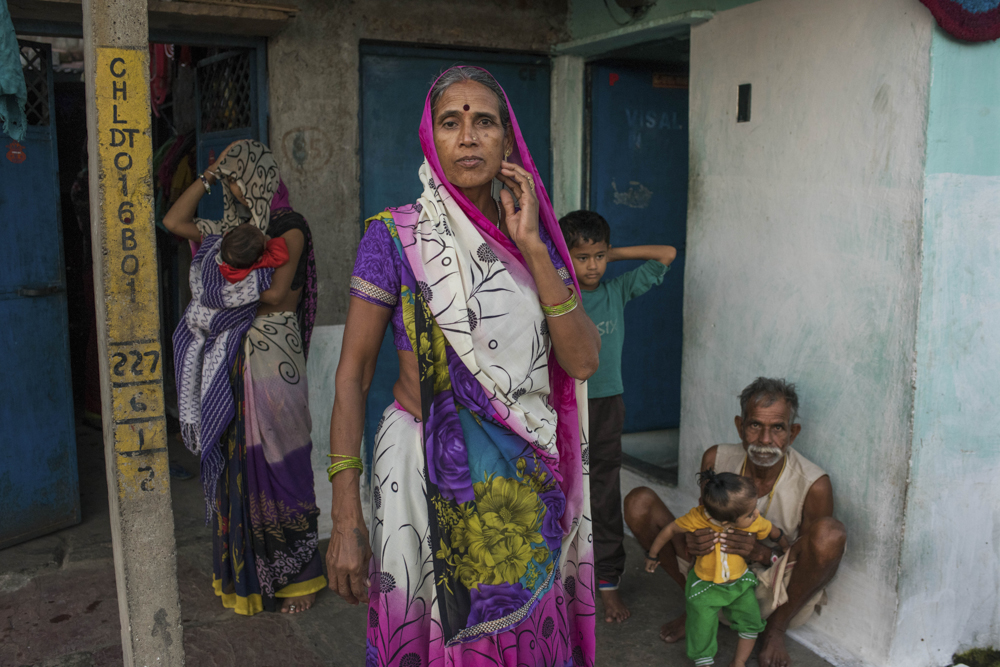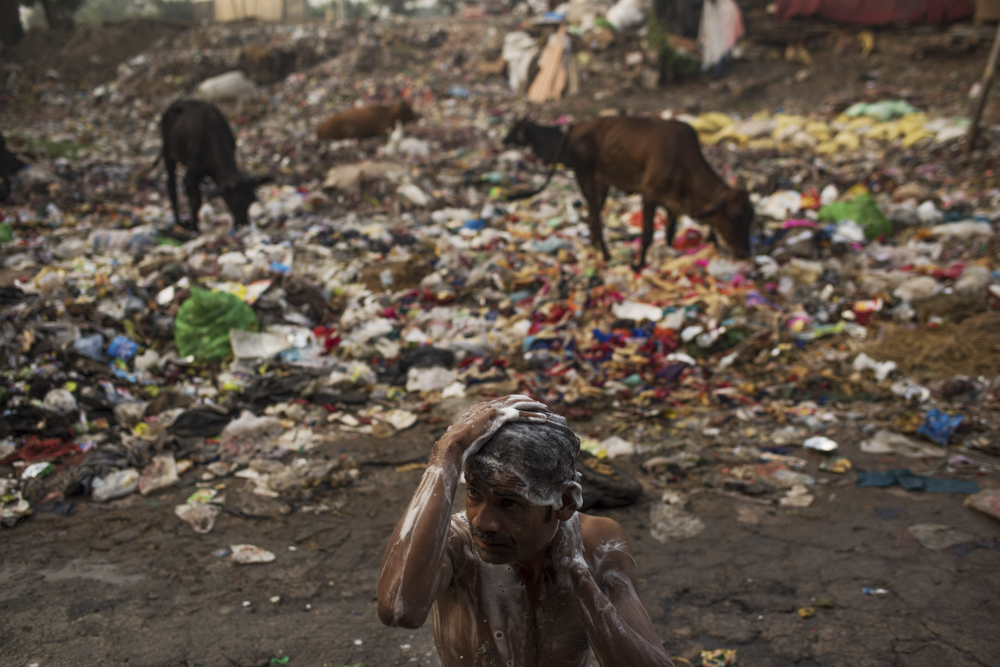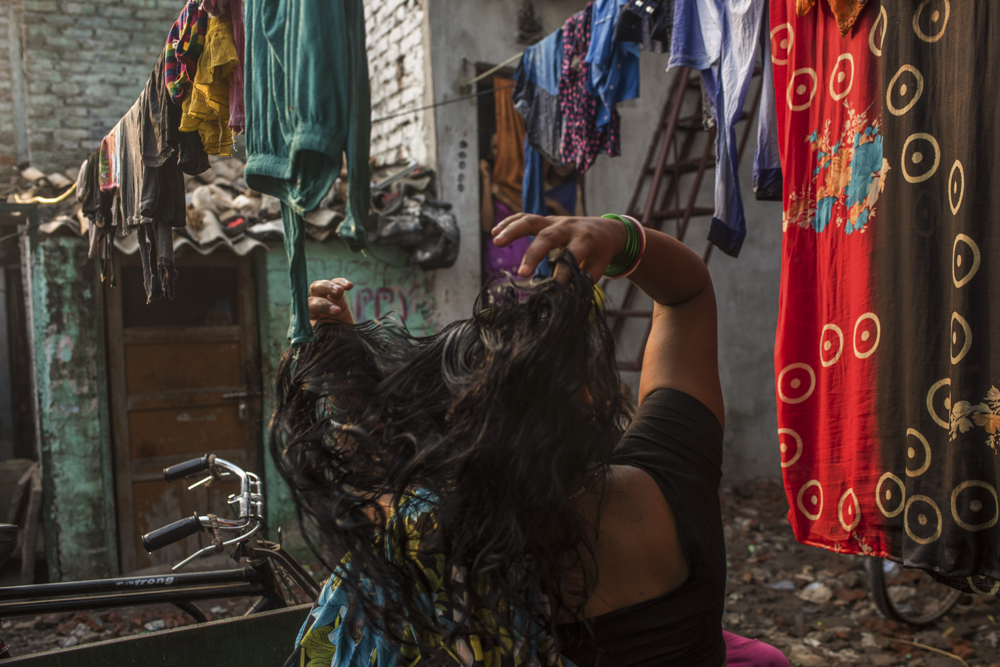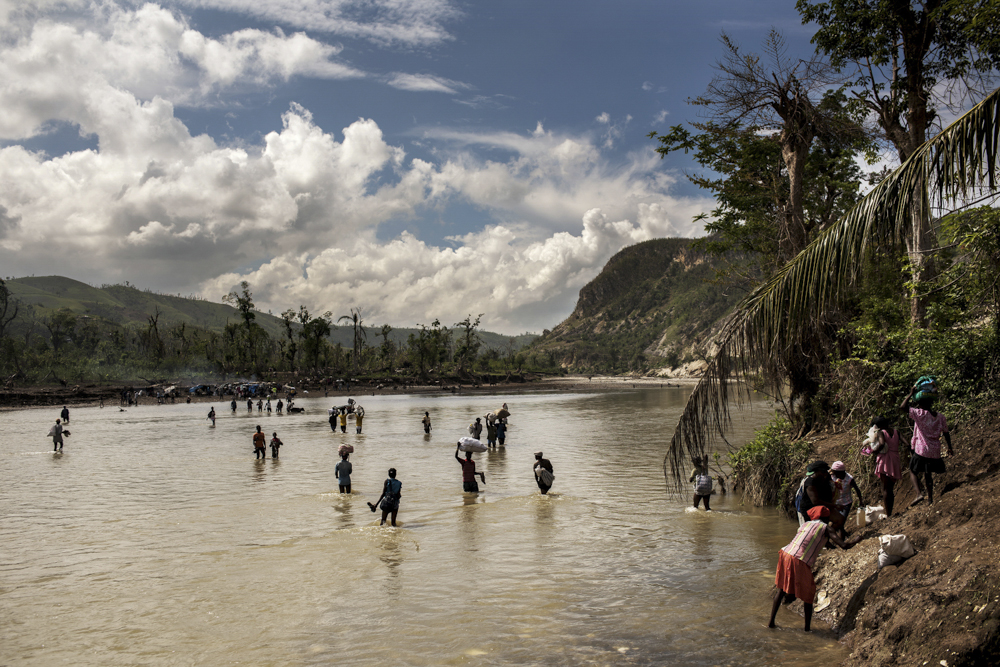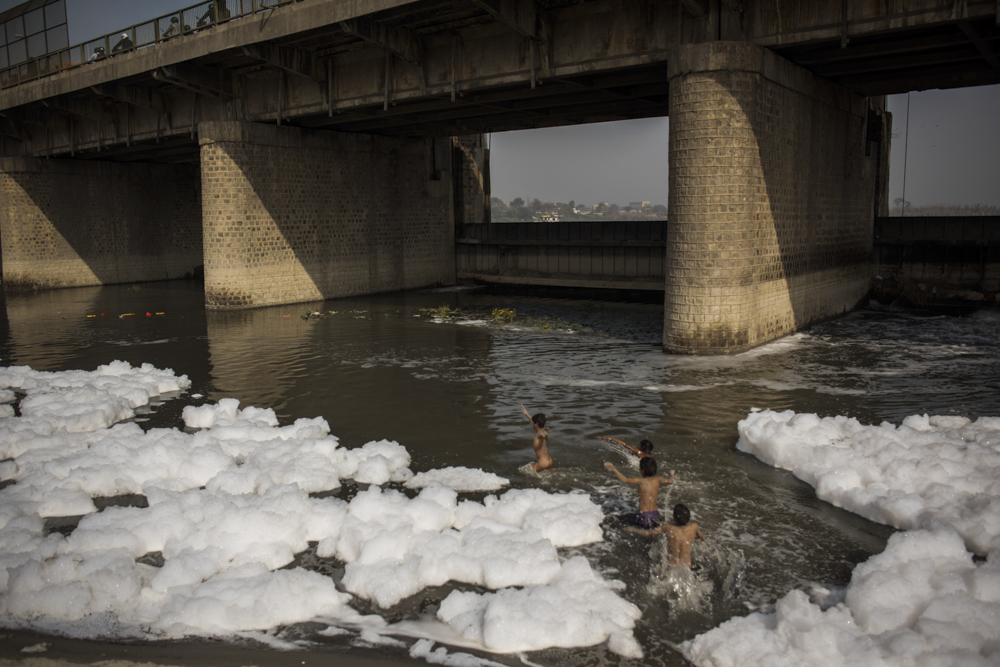A Place to Go: Sanitation and Open Defecation
Inside the Hidden Dangers of Life Without Toilets
by Andrea Bruce
Chapters
In our heavily populated world, poor sanitation contaminates water and food supplies, making it one of the most deadly issues humans face today. But words like open defecation, feces and sanitation are uncomfortable. This is rarely a topic politicians want to champion.Today, India is trying to change that, following in the footsteps of countries like Vietnam who desperately want to change the health of their country’s workforce and children.
Women, Privacy, Education and Sanitation: Open Defecation Can Be Dangerous.
India, Uttar Pradesh, 25 September 2016, In a village in Uttar Pradesh, girls line up for school. The school doesn’t have a working toilet and so the students must defecate in the nearby fields.
In much of the developing world where open defecation is the only option, women are vulnerable to rape. In schools, where toilets are dysfunctional or non-existent, girls drop out as soon they start menstruating. Many girls throughout the world drop out of school around the age of 13, when they start their period, because of a lack of toilets and privacy.
India, New Delhi, October 2016, A young woman dries her hair.
Open defecation may happen in India's villages more often, but it has a deeper impact on the water supply in India's slums.
Organizations like Water Aid work to provide toilets in the slums of cities like New Delhi. But they are a small fraction of what is necessary to maintain a healthy water supply and sanitary living conditions.
Water is often supplied by the government for one hour every morning causing a mad rush to the taps.
India, New Delhi, October 2016, Community toilets are one answer to India's lack of toilets. But without a system for maintenance and cleaning, defecation remains a health problem. These four are waiting for the one open, working stall to open for use.
India, New Delhi, 02 October 2016, Baby, 10, sits outside her home in a New Delhi slum. Her family says she has suffers from constant diarrhea.
In the village of Peepli Kheera, population around 800 people, there is only one toilet which is kept under lock and key. The entire community defecates outside. Men in the fields on one side of the village, women on the other.
About half of Indians defecate outside without using toilets. The result is that children pick up parasites and chronic infections that impair the ability of the intestines to absorb nutrients — and 117,000 Indian children die each year from diarrhea, according to Unicef.
India, Peepli Kheera, 24 September 2016, A woman walks to the outdoor area where she goes to relief herself.
Toilets from across the world
Accessing a toilet is only part of the problem in most places in the world.
Upkeep and emptying of pit toilets is difficult to maintain.
Public sanitation system, such as plumbing, are almost unheard of in most of the developing world.
Haiti’s Hurdle: Natural Disasters, Open Defecation and Cholera
In 2016, Haiti suffered yet another natural disaster. Hurricane Matthew revealed what happens when natural disasters combine with poor sanitation and cholera — people die quickly, spreading disease as they flee.
The storm killed an estimated 1600 people, but cholera, kept alive by open defecation in the slums and countryside, continues to haunt Haiti.
Haiti, Les Cayes, 15 November 2016, Rose Dena, 85, attempts to clean what is left of her home in the mountains of southern Haiti weeks after Hurricane Matthew.
Haiti, Les Cayes, 16 November 2016, Surrounded by the destruction caused by Hurricane Matthew, Pharana Pierre washes clothes while her daughter Carla Michele, 6, plays in in the water.
A resurgence of cholera, which first appeared after the 2010 earthquake, has appeared in the form of outbreaks all over the hurricane-affected areas. Most are caused by direct contact with infected water and poor sanitation. A cholera vaccination has been provided by the government but is only around 50 percent effective, giving many Haitians a false feeling of invincibility.
Haiti, Les Cayes, 14 November 2016, People living in a displacement camp called "Abri Lafwa" or "Faith Shelter" outside Les Cayes, Haiti, receive a cholera vaccine provided by the Haitian government.
Haiti, Roche A Bateau, 19 November 2016, The Elise Adventure Morija Church was swept away during Hurricane Matthew. The parishioners still hold services on the foundation of the church, under a tent.
Haiti, Port-au-Prince, 27 January 2017, Matteis Exalus, 44, Roger Dume, 45, and Exilian Cena, 44, have worked together as bayakou for around 20 years, they said.


